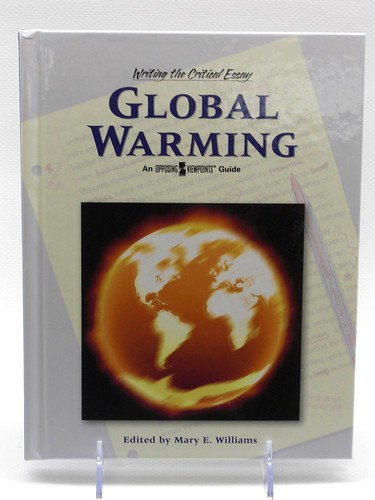


In November, a shadowy hacker whose identity is still unknown broke into the E-mail servers of a major climate research institute in England and found that scientists there had written of "hiding" data that didn't support their position and had mocked climate change skeptics.
The news flew through the climate-skeptic and right-wing blogosphere, where it was treated as proof that climate scientists were cooking the books to promote an alarmist agenda. That disclosure was followed soon after by news that a 2007 report by the Intergovernmental Panel on Climate Change, meant to be authoritative documentation of the scientific proof for climate change, had several sloppy errors, including a claim that 80 percent of the Himalyan glacier area would be gone by 2035 that was later retracted. "Climategate" was born. "This is not a smoking gun; this is a mushroom cloud," Patrick Michaels, a prominent climate skeptic, said at the time.
But was it? There is still a consensus that Earth is warming, and climate scientists have painstakingly argued that the E-mails don't do anything to challenge their conclusion that human activity is causing this climate change. But the controversy has opened the door to those who argue that human activity has played a lesser role in warming and thus does not merit a strong reaction. The splash that climategate has caused, however, is an indication of how the public debate has shifted dramatically over the past year.
For a time, it seemed that there was a growing consensus that climate change was a serious problem. Business and religious groups began to change their tune. Sen. John McCain, who spoke strongly of the need for action against climate change, won the 2008 Republican presidential nomination.
But the winds have been shifting in the other direction. In polls by the Pew Research Center, the proportion of people who believe that humans are causing global warming, which had been rising steadily for the past several years, dropped from 47 percent to 36 percent in a poll conducted from April 2008 to just before climategate.
What's behind this shift? Climate change has long been a partisan issue, with Republicans much more likely than Democrats to be skeptics. And while mainstream Republicans had slowly begun to accept climate change, the ideological energy in the GOP now comes more from the blogosphere and the anti-elite tea-party movement, which tend to be much more hostile to global warming science. Journalists, who often find controversy easier to report on than science, have latched on to the "climategate" allegations. And scientists, with their innate caution, are loath to oversimplify for a zippy sound bite and are easily outargued. "It's led to a true dumbing down of the media coverage of this, to the point that no one seems to be doing any fact-checking at all," says Gavin Schmidt, a NASA climate scientist who runs the popular blog RealClimate.
Stalled. This was all going on before climategate, which has only intensified the arguments. The Senate's most vociferous climate change skeptic, James Inhofe of Oklahoma, said the disclosures warranted an investigation "on the way that they cooked the science" (story, Page 20). And a BBC poll taken in February showed that the percentage of Britons who believed that humans are causing global warming has dropped by a third since November.
Even McCain seems to have backed off on climate change. He's now facing a serious primary challenger from the right in his upcoming re-election campaign and has been noticeably quiet on climate issues of late, says Eileen Claussen, the president of the Pew Center on Global Climate Change. Claussen notes that as recently as last August, McCain was arguing that "climate change is real. It's happening now." But she says, "I don't think you'll see that again." And a climate and energy bill that passed the House last June has stalled. Climategate, she says, "has made the politics of actually trying to get something done here much, much harder." For all the snow that hit Washington this winter, there is still plenty of hot air.
CAPTION(S):
A glacier in southeast Iceland
Source Citation
"A Smoking Gun or Just Hot Air? Climategate reflects the changing debate over global warming." U.S. News & World Report 1 Apr. 2010: 19. General OneFile. Web. 21 Mar. 2010.
Document URL
http://find.galegroup.com/gps/infomark.do?&contentSet=IAC-Documents&type=retrieve&tabID=T003&prodId=IPS&docId=A221446742&source=gale&srcprod=ITOF&userGroupName=22054_acld&version=1.0


No comments:
Post a Comment